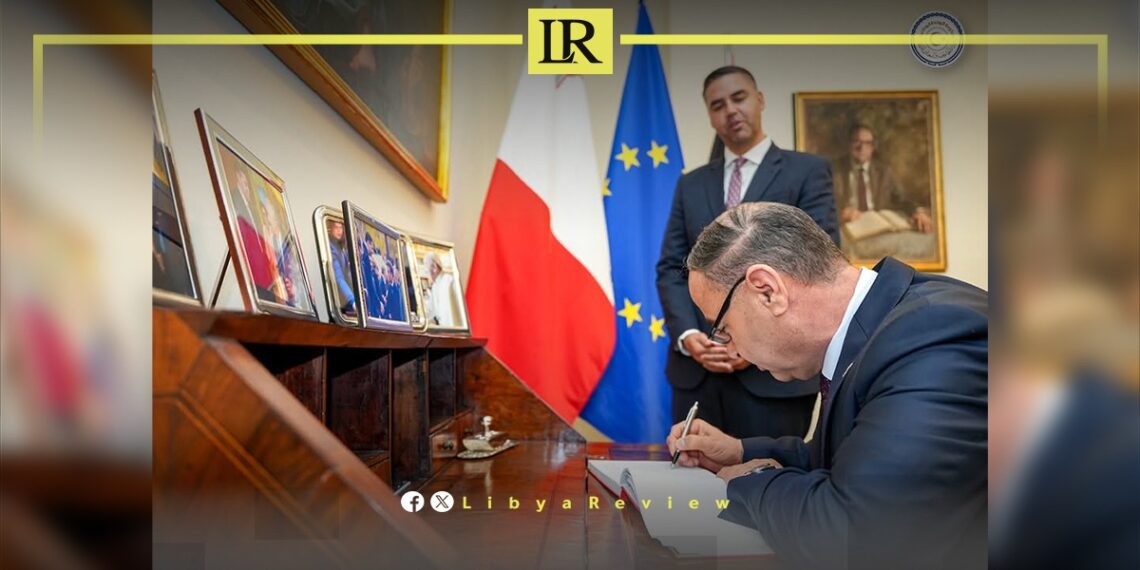Libya’s Government of National Unity (GNU) has reached an agreement with Malta to open discussions on maritime border issues, with the possibility of expanding talks to include other countries if overlapping interests emerge.
The announcement was made by the GNU’s Acting Foreign Minister, Al-Taher Al-Baour, following an official visit to Valletta on Wednesday. He held bilateral talks with Maltese Foreign Minister Ian Borg, before broader discussions were joined by delegations from both sides.
According to the Libyan Foreign Ministry, the meeting focused on strengthening bilateral relations and exploring new avenues of cooperation. Topics ranged from political developments in Libya to pressing regional challenges, including irregular migration, border management, and enhanced coordination between the two countries’ coastguards. Both ministers underlined the need for joint efforts to tackle the root causes of migration through development programmes and closer security collaboration.
On maritime borders, the two sides agreed on the importance of constructive dialogue to achieve mutually beneficial cooperation. The Libyan Foreign Ministry stressed that while bilateral talks would remain the priority, the issue could be expanded to multilateral discussions should there be contact with a third state.
Al-Baour praised the long-standing ties between Libya and Malta, dating back to 1965, highlighting a history of treaties, trade, and friendship agreements. He expressed appreciation for the growing volume of trade exchange, describing Malta as a key partner for Libya in the Mediterranean.
The Maltese Foreign Minister echoed this sentiment, reaffirming Valletta’s commitment to strengthening cooperation with Tripoli. Borg noted that the two countries share similar views on several regional and international issues, including the Middle East and the conflict in Ukraine. He added that Malta intends to formally recognise the State of Palestine at the upcoming session of the United Nations General Assembly in September, a move welcomed by his Libyan counterpart.
Both sides also reaffirmed their commitment to supporting peaceful solutions to the Libyan crisis, underlining the importance of consensus-based approaches to ensure long-term stability. The ministers agreed to maintain close political consultations, exchange views on global developments, and coordinate positions on matters of shared concern.
The visit concluded with a renewed pledge to deepen bilateral ties across political, economic, and security fields, positioning Malta as an important Mediterranean partner for Libya’s future stability and development.


